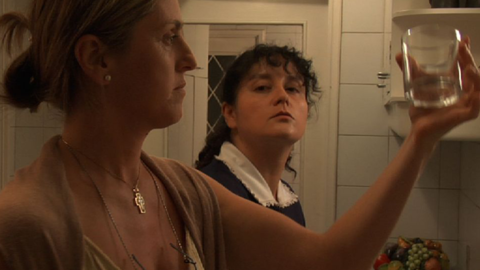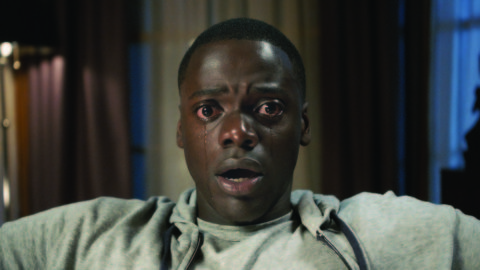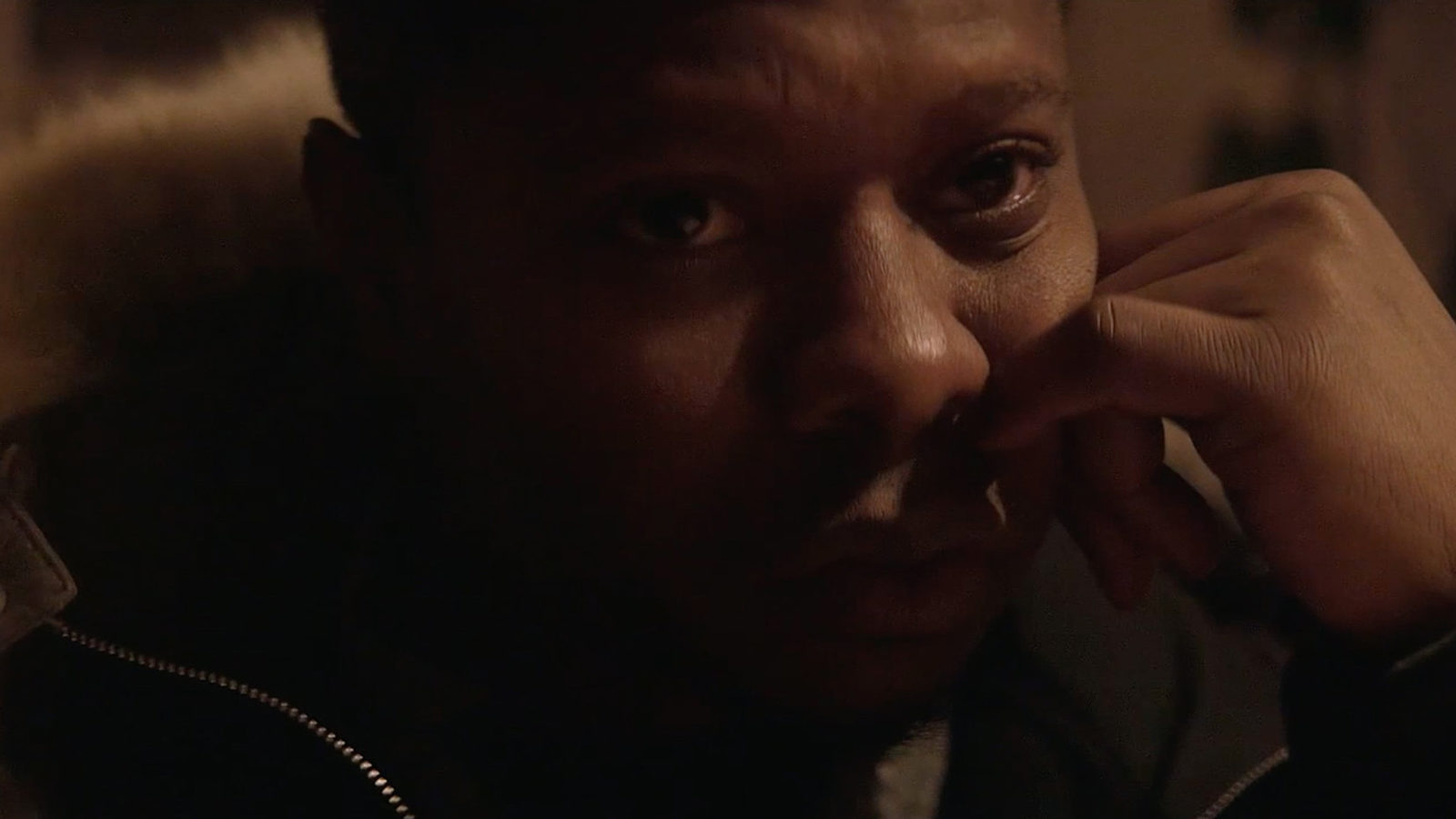
Review: Tyrel
On a dreary rural road somewhere upstate, twentysomething New York City chef Tyler (Jason Mitchell) is push-starting his car with a friend. He’s agreed to make a trip with a pal for the weekend birthday celebration of someone he hardly knows, and it doesn’t seem to be off to an auspicious start. When a group of friendly bros en route to the party hop out of a pickup truck and greet him and his companion with bombastic good cheer, one thing becomes suddenly evident: Tyler is the only black man in a sea of white faces. On their introduction, someone mistakenly refers to him as “Tyrel.” Though he quickly corrects it and all seems calm on the surface, an uneasy weekend ensues.
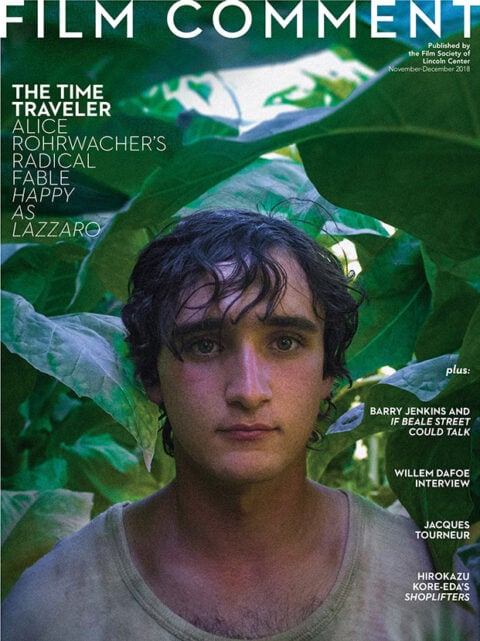
As the narrative loosely unfurls, the guys drink, play, prank, and talk shit, welcoming Tyler into their circle with little fanfare. But little remarks and microaggressions that pass unnoticed by the others sting: “Do an old black lady accent,” one crows at another. As they play-fight and mess around, clueless to Tyler’s discomfort, Mitchell conveys an excellent combination of forced levity and stewing anger. He pretends to go to bed early, and plays with the dog in lieu of associating with the humans in the house; his feelings of alienation and awkwardness are nearly oppressive.
Tyrel is actually Sebastián Silva’s seventh feature, but you might not guess that if you weren’t already keeping track: this is a smart, well-crafted indie film, but it doesn’t feel especially distinguished stylistically. His previous output has been relatively patchy—Nasty Baby (2015) is a tonal mess and the twin 2013 releases Crystal Fairy and Magic Magic are slight, forgettable bits of ephemera starring Michael Cera. Looking at Silva’s back catalogue, one can note a tendency for picking up on dog-whistle subtleties between people—tiny fractures and misunderstandings that set the stage for greater trouble.
In Tyrel, Silva’s hyper-mobile camera dodges among and around its subjects at high speed, destabilizing the proceedings. It ratchets up a sense of Tyler’s dislocation, though the overall approach is still one of relatively pedestrian indie realism. Form generally follows content here: ostensibly nothing is really happening, but the group dynamic seems to be taking on the shape of a thriller in Tyler’s mind.
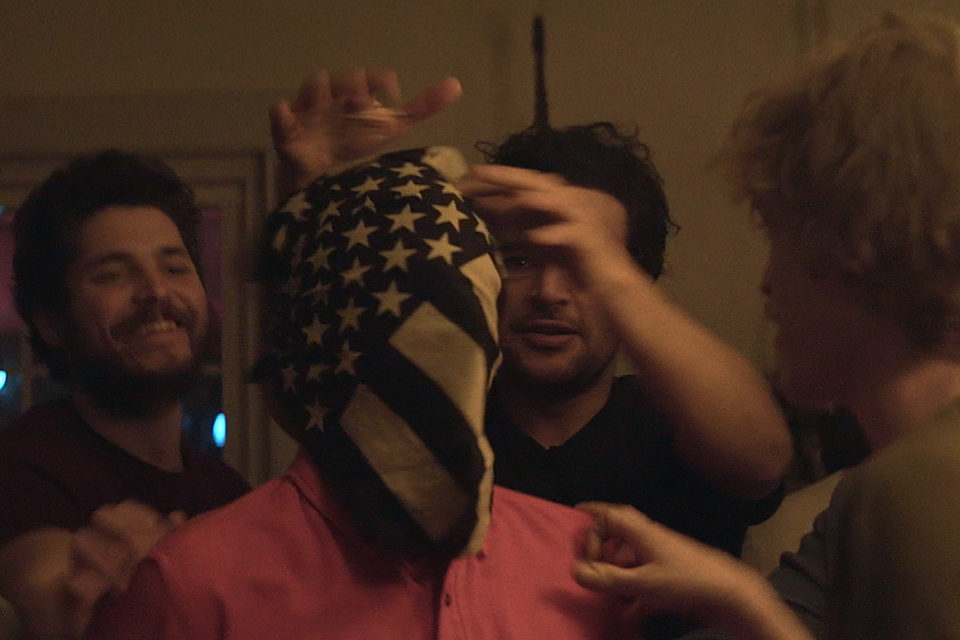
To make a movie about microaggressions is to enter difficult territory because they are so commonplace, and what follows is necessarily literal. Tyrel falters most when its own narrative feels both needlessly banal and basic: repetitive with its thematic concerns, filling time with dead air and pointless banter. Silva upends expectations by refusing to build to any kind of theatrical incident, but he also tries to have it both ways by relying heavily on horror tropes that seem familiar post–Get Out. This reflexivity is broadened by the appearance of Get Out’s Caleb Landry Jones as the menacing, big-mouthed birthday boy. If this casting was intended to do anything other than draw further comparison, it was perhaps not the best choice.
When Cera makes an appearance late in the film as the house’s resident joker, he dons a wetsuit and says, “Tyler, you’re not the only black man here now!” There’s a divide that feels enormous from Tyler’s perspective: his intense discomfort, which after a day of binge drinking transitions into genuine fear, is striking and sickening. The parallels between Tyrel and Get Out are again impossible to miss, not only in their setups but also in their logical conclusions. These doom-laden dramas see black men traveling out of town with only white companions. Upstate New York becomes a stand-in for any of the patches of non-metropolitan America: not quite as historically troubled as the South, but still a largely red-state area populated by white yokels. And since it’s a location that fosters seeming liberalism with its proximity to New York City, the privileged white characters are perhaps scarier for the progressive masks they wear.
Tyrel is at its best in the closing sequences, in which the taking of an ordinary group selfie skews toward the deeply uncomfortable. Tyler’s eyes look out over the proceedings with a gaze of unspoken frustration; there doesn’t need to be a metaphorical “sunken place” for get-togethers of this kind to breed their own quiet hostility.
Christina Newland is a writer on film, culture, and boxing, with bylines at Sight & Sound, The Guardian, and others.





